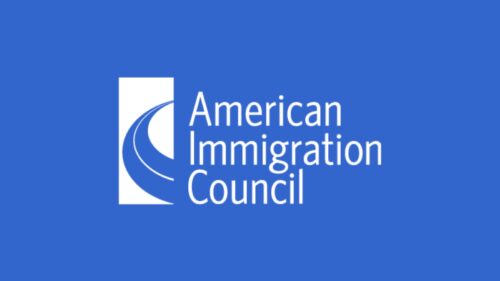WASHINGTON—A federal lawsuit filed Thursday on behalf of seven U.S. businesses challenges U.S. Citizenship and Immigration Services’ arbitrary rejection of H-1B nonimmigrant employment-based petitions filed after October 1 solely because the H-1B worker’s intended employment start date falls after October 1—an arbitrary limitation not found in immigration laws, regulations, or USCIS form instructions.
The suit filed in the federal district court for the District of Massachusetts seeks to limit restrictions on business immigration and stop USCIS’ arbitrary and capricious refusal to accept timely and properly filed H-1B petitions which are subject to the annual statutory cap on H-1B visa numbers allocated each year. The American Immigration Council is co-counseling with Mintz Levin, Cohn, Ferris, Glovsky and Popeo, P.C.; Joseph & Hall P.C.; Meyner and Landis LLP; Driggs Immigration Law; and Barnes & Thornburg LLP.
The H-1B visa category allows employers to petition for highly educated foreign professionals to work in “specialty occupations” that require at least a bachelor’s degree or the equivalent in a specific specialty. U.S. employers seeking highly educated foreign professionals submit their petitions to USCIS.
Congress established a cap of 65,000 regular H-1B visa numbers per fiscal year. An additional 20,000 H-1B visa numbers are available each fiscal year without regard to the 65,000 cap if the beneficiary has a master’s or higher degree from a U.S. university.
In 2020, USCIS replaced the mass filing of H-1B petitions in April with an annual registration process which opens in March—several months before the federal fiscal year begins on October 1.
“There is no law or regulation that requires an October 1 start date for a cap-subject H-1B petition and neither do USCIS’ instructions,” said Leslie K. Dellon, staff attorney on business immigration at the American Immigration Council. “Requiring an October 1 start date would mean that only a foreign professional who is able to start work precisely on October 1—and not a later date in the fiscal year—could receive an H-1B visa number unless their U.S. employer affirmatively misrepresents the employment start-date. Such an absurd result is not reflected anywhere in the statute or regulations.”
In a joint statement, Mintz Members and co-counsel for the plaintiffs Douglas Hauer and Laurence Schoen said that, “There is no legal basis for USCIS’ rejection of plaintiffs’ properly filed H-1B petitions, and this process of backdating is unlawful. We hope that the agency will right this wrongdoing and cease from penalizing employers for not complying with an unwritten rule without any basis in statute, regulation, or published policy.”
A copy of the complaint is here.
###
For more information, contact:
Maria Frausto, American Immigration Council, [email protected], 202-507-7526.


